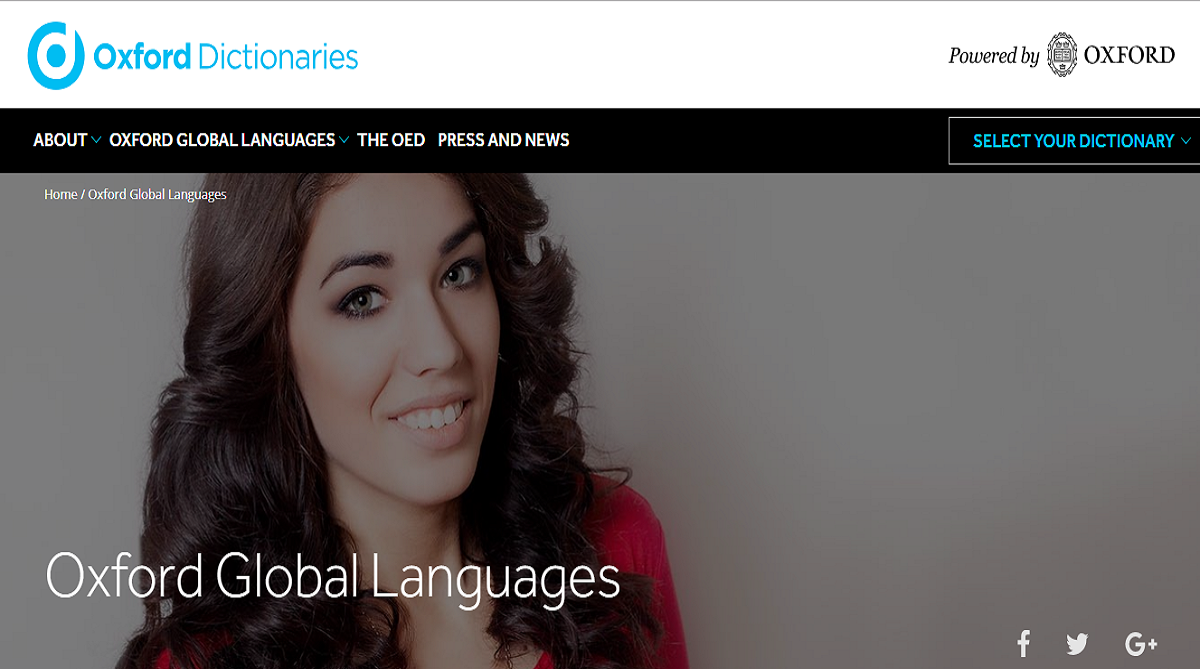What will be Oxford Hindi Word of the Year 2018? Submissions invited
Submissions have been invited from the public who have time till December 9 to suggest a word that reflected the "ethos" and "mood" of the nation through the year
Oxford Global Languages was launched in September 2015. It is a major initiative from Oxford Dictionaries that aims to build lexicographical and other language resources for around 100 of the world’s languages and to make them available online.

www.oxforddictionaries.com
Telugu has joined many languages across the globe as part of the Oxford Dictionaries’ global languages initiative.
Oxford Global Languages was launched in September 2015. It is a major initiative from Oxford Dictionaries that aims to build lexicographical and other language resources for around 100 of the world’s languages and to make them available online.
Advertisement
Large quantities of quality lexical information for a huge range of languages will be systematically created, collected, and made available, in a single linked repository, to speakers, learners, and developers for the first time.
Advertisement
The main objective of the programme is to transform the experience of millions of people worldwide by making content in their language available in digital form: on websites, in apps, and in many different tools and services.
“We are excited to have Telugu as the latest addition to Oxford Global Languages, an initiative that seeks to raise the profile of languages around the globe and make dictionaries and other resources available online to all. Telugu is the fourth most populous language in India, spoken widely in the states of Andhra Pradesh and Telangana as well as elsewhere”, explained Judy Pearsall, Director for Oxford Dictionaries.
Ms Kritika Agrawal, University of Oxford graduate and lawyer, said “We are especially proud of this new Telugu-English dictionary, which is one of the first to focus on modern spoken and written Telugu as well as the traditional classical language, ensuring that the vitality of the language in everyday use is celebrated and made accessible to all.”
She added: “OGL is a brilliant initiative by OUP that has brought into focus five major Indian regional languages (including Hindi, Urdu, Gujarati, Tamil and now, Telugu) at a global platform. The concept of living dictionaries is the need of the hour for the preservation of our languages and literature. OGL addresses that need, engages the valuable human resource and is instrumental in the growth these languages achieved through active user participation!”
The language community itself is a key feature of Oxford Global Languages. The team works closely with local language community to help create living dictionaries. The goal is for users to feel that they are a part of supporting and developing resources for their language.
Mr Vinny Bogadala, Telugu native speaker and member of the Telugu diaspora community in Oxford said, “This is a tribute to all the scholars, poets, and legendary leaders who contributed to the Telugu community and Telugu speaking humans on this planet. Massive thanks for your contribution to our community and our people.”
It has also helped in building a new type of language database that enables multiple links between languages and other content. Oxford Dictionaries has also developed an innovative new Lexical Engine and Platform where the datasets can be integrated, standardized, and shared.
This helps in multiple languages stored and queried in a single platform.
Advertisement